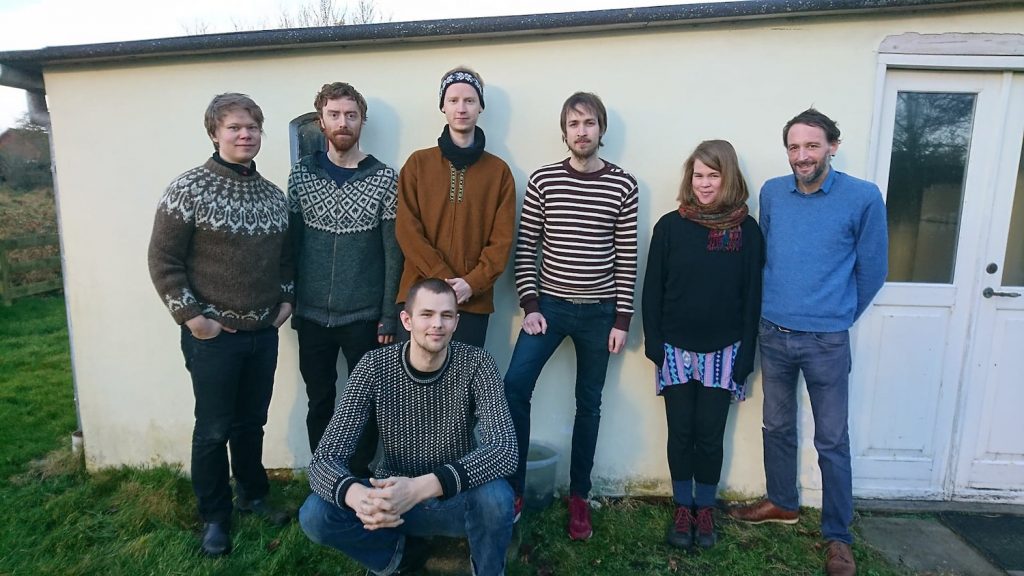There’s been no shortage of records whose making reflects our times. Performed alone or cobbled together via file sharing, their collective lack of evidence that people sang or played together in a room while making them may someday define what 2020-2021 sounds like. The Old Fable River will not be remembered in their company.
This collaboration between Scottish singer/songwriter Alasdair Roberts and Norwegian group Völvur follows a different timeline, one where years of global plague are part of a greater cycle of life and death. It came into being when Roberts accepted an invitation by fiddler Hans Kjorstad to go to Scandinavia to work up a few tunes and play some shows with his band. They got on well enough for Roberts to pull together some new material and invite Völvur to play and record with him in England at the beginning of last year.
A common lyrical thread binds The Old Fable River’s eight songs: the cycle of life and seasons. Singing in an accent thick enough that you could wear it like a coat, Roberts begins the album with “Hymn Of Welcome,” on which a dying soul greets a newcomer to the world. His words say more about what the speaker regrets than what the youngster needs to hear; one human’s lifetime isn’t long enough to eradicate human folly, but Roberts describes the exchange with a compassion knowing that people just don’t know any better. Völvur singer/reeds player Marthe Lea gets the last word with a 17th-century song about the sunset (“Nu Solen Går Ned”). In between, life and death take turns, as do the singers; their voices blend just once, on an acapella arrangement of poet Robert Burns’ “Song Composed In August” that falls, fittingly, in the album’s middle.
While no song sounds like another, they’re all bound by a common sensibility. Both Roberts and Völvur combine their foundations in antique forms with a strong grasp of the present time’s advances. When they aren’t performing folk music, Völvur’s members play jazz and minimalist pieces. Their command of timbres imparts sweetness and pungency in strategically balanced measures, and their egoless rapport ensures that the music is never cluttered or busy for busyness’ sake.
The Old Fable River may not sit on the shelf with the records of its time, sonically or methodologically, but that doesn’t mean that it has nothing to say to the present. Its long view is a pointed reminder that this time will pass, and we will, too. So bear what needs bearing with a comforting tune in your heart, and enjoy what you can along the way.
—Bill Meyer


